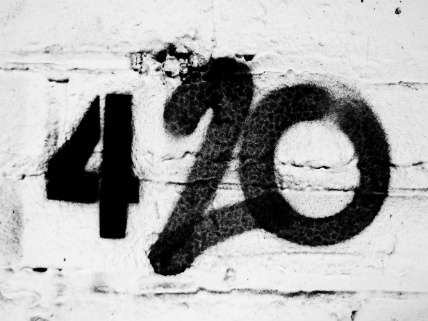Detroit Cracks Down Hard On Medical Marijuana
The city has shuttered well over half its dispensaries, and has plans to close many more.

Detroit is cracking down hard on medical marijuana.
Ever since an onerous and highly controversial zoning ordinance went into effect in 2016, 167 of about 280 dispensaries that were operating in the Detroit have been shut down by city officials, and city lawyers say another 50 will be shuttered in the coming weeks.
The root of these closures, says Joesef White, Detroit chapter leader of the National Organization for the Reform of Marijuana Laws, is city officials drafting regulations without concern or input from those who would have to abide by the new rules.
"The cannabis community was really not that actively involved in putting that legislation together for the city of Detroit," White said. "Ultimately what happened was that the zoning of dispensaries or cannabis related businesses was very, very restrictive."
Indeed, to legally operate a medical marijuana dispensary in Detroit requires said dispensary be located 1,000 feet away from schools, parks, libraries, day care centers, and churches. Oh, and liquor stores. A marijuana dispensary can't even be located within a thousand feet of another dispensary.
This has restricted dispensaries to operating in mostly inaccessible and undesirable industrial zones, White says. And that zoning is on top of licensing requirements that threaten even those businesses that have managed to stay open in undesirable industrial locations.
So far the city has licensed just five medical marijuana dispensaries, or one fully licensed dispensary for every 135,000 residents. Another 70 are operating under provisional permission while they go through the approval process, but the city of Detroit has stated they intend to have no more than 50 citywide.
The curtailment of the medical marijuana business and the promise of further crackdowns has taken a toll on patients, says Ron Jones, a local cannabis activist and member of Sons of Hemp.
"A lot of dispensaries that were open built relationships over the years with their patients." he tells Reason. Medical marijuana has been legal statewide in Michigan since voters passed a "Compassionate Care Initiative" in 2008.
"Now," Jones says, "by them being closed down, that kind of closes the door."
Jones and a group of dispensary owners sued the city last year over its zoning requirements, and he is currently promoting a petition that would change the licensing requirements in the city.
More sweeping efforts at reform are also underway.
On May 5, marijuana activists submitted petition language to the state requesting a ballot initiative for full recreational marijuana legalization in the hope of getting it on the November, 2018 ballot.
Full-scale legalization could force Detroit to reform some of the current regulations on the books. Full legalization or no, however White says there is plenty of work to be done on the local level.
"What we are trying to do here," he says "is find common ground and come together and help the local constituents and work with their elected officials to draft an ordinance that everyone can live with."
Ultimately though White feels history is on his side.
"Regardless of what side of the argument you're on," White says, "this marijuana issue is going to move forward. It's moving forward across the country."
Rent Free is a weekly newsletter from Christian Britschgi on urbanism and the fight for less regulation, more housing, more property rights, and more freedom in America's cities.


Show Comments (24)